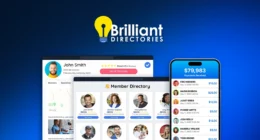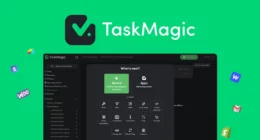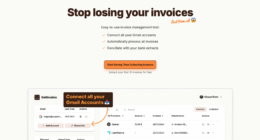Leading email marketing platforms for ecommerce include Klaviyo, ActiveCampaign, Mailchimp, Brevo, and Omnisend. Each platform offers essential features like automation, segmentation, and analytics, but they differ in specialties. Klaviyo excels in predictive analytics and ecommerce integrations, while ActiveCampaign stands out for workflow automation. Mailchimp provides user-friendly templates, Brevo offers affordable multichannel options, and Omnisend specializes in advanced ecommerce features. Understanding each platform’s unique strengths helps determine the best fit for specific business needs.
Quick Overview
- Klaviyo leads ecommerce email marketing with advanced predictive analytics and seamless integration with major platforms like Shopify and WooCommerce.
- Omnisend specializes in ecommerce with built-in product embedding, automated workflows, and trigger-based campaigns for abandoned cart recovery.
- ActiveCampaign offers sophisticated automation capabilities with deep personalization features for targeted ecommerce customer journeys.
- Mailchimp provides user-friendly templates and robust customer journey management tools at competitive pricing for small to medium businesses.
- Brevo delivers affordable multichannel marketing solutions with essential ecommerce features and straightforward automation tools for growing businesses.
Understanding Email Marketing Software for Ecommerce Businesses

Email marketing software serves as the backbone of successful ecommerce businesses in today’s digital marketplace. These powerful tools help companies manage customer outreach, automate campaigns, and optimize engagement through various features designed specifically for online retailers.
At its core, ecommerce email marketing software integrates seamlessly with popular platforms like Shopify, WooCommerce, and Magento to streamline marketing operations. The technology enables businesses to:
- Send targeted newsletters and promotional offers
- Create personalized product recommendations
- Automate order confirmations and shipping updates
- Track customer behavior and campaign performance
- Manage customer segmentation effectively
These platforms also include essential analytics tools that measure key metrics like open rates and conversions, helping businesses make data-driven decisions. With built-in automation workflows, companies can guarantee consistent communication while maintaining compliance with email regulations like GDPR and CAN-SPAM. The platform’s 24/7 support channels ensure businesses receive assistance whenever they need it.
Key Features to Look for in Ecommerce Email Marketing Platforms
When selecting an ecommerce email marketing platform, businesses must carefully evaluate several essential features that can substantially impact their marketing success. The most critical features include robust automation capabilities for trigger-based emails and drip campaigns, along with advanced segmentation tools that leverage customer data for personalized messaging.
Effective platforms should offer seamless omnichannel integration, connecting email marketing with other communication channels like SMS and push notifications. Extensive analytics and reporting tools are vital for tracking campaign performance and ROI. A reliable platform should maintain clean email lists by automatically removing invalid or inactive addresses to ensure high deliverability rates. Additionally, the software should provide scalability to accommodate business growth while maintaining ease of use through intuitive interfaces and customizable templates.
These key features work together to create powerful marketing campaigns that drive engagement, boost conversions, and build lasting customer relationships across multiple touchpoints.
Top Email Marketing Software Solutions Compared

A diverse landscape of email marketing solutions awaits ecommerce businesses seeking the perfect platform for their needs. Budget-conscious businesses can start with Moosend or Brevo at $9/month, while those requiring advanced features might consider Klaviyo or HubSpot’s thorough solutions. Constant Contact stands out with its excellent customer support across multiple communication channels.
Leading platforms differentiate themselves through distinct strengths:
- Klaviyo excels in predictive analytics and ecommerce integrations
- ActiveCampaign offers sophisticated workflow automation
- Mailchimp provides user-friendly templates and customer journeys
- Brevo delivers affordable multichannel marketing capabilities
For small businesses prioritizing ease of use, Benchmark Email and Moosend offer intuitive interfaces. Companies needing robust ecommerce integration should consider Klaviyo or Omnisend, which provide advanced features like automatic product embedding and trigger-based campaigns. The choice ultimately depends on specific business requirements, scalability needs, and budget constraints.
Choosing the Right Email Marketing Tool for Your Online Store
Selecting the right email marketing platform represents one of the most crucial decisions for online store owners looking to boost their sales and customer engagement. When evaluating different tools, businesses should consider their specific needs across several key dimensions:
| Feature Category | Small Store Needs | Enterprise Requirements |
|---|---|---|
| Integration | Basic Shopify/WooCommerce | Multi-platform, API access |
| Automation | Simple workflows | Advanced AI-driven flows |
| Personalization | Basic segmentation | Deep behavioral targeting |
| Ease of Use | Drag-and-drop essential | Technical flexibility |
| Pricing | Pay-as-you-grow | Volume-based enterprise |
The platform selection process should prioritize scalability, ensuring the chosen solution can grow alongside the business. Key considerations include the quality of ecommerce integrations, automation capabilities, and the balance between functionality and budget constraints. Comprehensive analytics and reporting features enable businesses to track campaign performance and optimize their marketing strategies effectively.
Maximizing ROI With Advanced Email Marketing Capabilities

Modern email marketing platforms offer sophisticated capabilities that can dramatically boost return on investment for online retailers. Through AI-driven personalization, these tools analyze customer behavior to deliver highly targeted product recommendations and content. The potential for a 42x ROI makes email marketing one of the most cost-effective digital marketing channels available today.
Advanced features include:
- Micro-segmentation using 120+ attributes to create precisely targeted campaigns
- Dynamic content that adapts in real-time based on customer demographics and actions
- AI-optimized send times to maximize engagement
- Automated workflows for cart abandonment and post-purchase follow-ups
- Integration with major ecommerce platforms for real-time inventory and customer data
Analytics dashboards provide detailed performance tracking, allowing marketers to measure campaign success through metrics like conversion rates and revenue impact. With pre-built templates and AI-powered content creation, these platforms substantially reduce campaign setup time while maintaining effectiveness.
Frequently Asked Questions
How Long Does It Take to Migrate From One Email Marketing Platform to Another?
Migration time between email marketing platforms varies substantially based on complexity. Simple newsletter setups with few subscribers can be completed within hours, while medium-complexity shifts typically take 2-3 weeks.
Large-scale migrations involving complex automations and extensive subscriber lists may require 30-90 days. Key factors affecting duration include data volume, staff resources, technical expertise, and IP warm-up requirements. Most companies maintain their old platform for at least a month during the migration process.
Can I Use Multiple Email Marketing Platforms Simultaneously for Different Business Segments?
Yes, businesses can effectively use multiple email marketing platforms simultaneously. This approach offers several benefits:
- Different platforms can serve distinct business segments (e.g., retail vs. wholesale)
- Each platform’s unique strengths can be leveraged for specific needs
- Segmented data analysis becomes more precise
- A/B testing across platforms provides broader insights
However, companies should be mindful of the following:
- Maintain consistent branding
- Prevent customer overlap
- Track costs carefully
- Confirm compliance across all platforms
This strategy requires careful management but can optimize marketing efforts for different business areas.
What Happens to My Subscriber Data if My Email Marketing Provider Goes Down?
If an email marketing provider experiences downtime, the impact on subscriber data depends on several factors. Most providers maintain backup systems to prevent permanent loss, but temporary access disruption is possible.
To protect against data loss, users should:
- Regularly export subscriber lists to external storage
- Choose providers with robust backup policies
- Monitor provider status regularly
- Have a backup provider ready if needed
These precautions guarantee business continuity even during provider outages.
Are There Special Pricing Plans for Seasonal Businesses With Fluctuating Email Volumes?
Yes, several email marketing providers offer flexible pricing models specifically designed for seasonal businesses.
Pay-as-you-go options like Moosend’s credit-based system and MailChimp’s per-email pricing allow businesses to pay only for what they use during active seasons. Constant Contact offers customizable monthly plans that can be adjusted based on subscriber count, while AWeber provides tiered plans with free options for smaller seasonal campaigns.
These models help businesses manage costs during off-peak periods.
How Do Different Email Marketing Platforms Handle International Privacy and Spam Laws?
Like a vigilant guardian protecting valuable data, modern email marketing platforms offer robust compliance features for international privacy laws. Most platforms automatically handle key requirements:
- Built-in GDPR compliance tools for consent management
- Automated unsubscribe processing for CAN-SPAM compliance
- Geolocation-based segmentation for region-specific rules
- Pre-made templates meeting LGPD and other regulations
- Thorough audit trails and consent records
These features help businesses navigate complex global requirements while maintaining legal compliance seamlessly.
Conclusion
Just as a skilled captain selects the right vessel for their journey, choosing the perfect email marketing software enables ecommerce businesses to navigate the digital marketplace successfully. By carefully evaluating features, costs, and integration capabilities, online retailers can implement a solution that drives engagement, boosts sales, and nurtures customer relationships. With the right platform in place, businesses can automate their email marketing efforts while delivering personalized experiences that resonate with their target audience.








